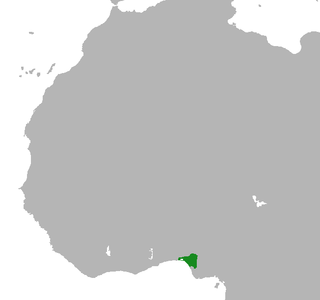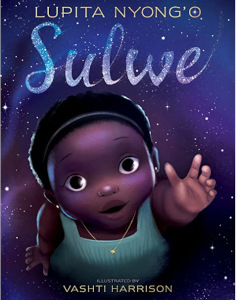Related Research Articles

The Dahomey Amazons were a Fon all-female military regiment of the Kingdom of Dahomey that existed from the 17th century until the late 19th century. They were the only female army in modern history. They were named Amazons by Western Europeans who encountered them, due to the story of the female warriors of Amazons in Greek mythology.

Olga de Alaketu or Mother Olga was a prominent Candomblé high priestess, who was influential in promoting Candomblé and distancing it from Catholicism.

Francisco Félix de Souza was a Brazilian slave trader who was deeply influential in the regional politics of pre-colonial West Africa. He founded Afro-Brazilian communities in areas that are now part of those countries, and went on to become the "chachá" of Ouidah, a title that conferred no official powers but commanded local respect in the Kingdom of Dahomey, where, after being jailed by King Adandozan of Dahomey, he helped Ghezo ascend the throne in a coup d'état. He became chacha to the new king, a curious phrase that has been explained as originating from his saying "(...) já, já.", a Portuguese phrase meaning something will be done right away.

Cinderella is a fictional character who appears in Walt Disney Productions' 12th animated feature film Cinderella (1950). In the original film, Cinderella is voiced by American singer and actress Ilene Woods. For the sequels and subsequent film and television appearances, Woods was replaced by American actresses Jennifer Hale and Tami Tappan, who provide the character's speaking and singing voices.

The Kingdom of Benin, also known as the Edo Kingdom or the Benin Empire, was a kingdom within what is now southern Nigeria. It has no historical relation to the modern republic of Benin, which was known as Dahomey from the 17th century until 1975. The Kingdom of Benin's capital was Edo, now known as Benin City in Edo State, Nigeria. The Benin Kingdom was "one of the oldest and most developed states in the coastal hinterland of West Africa". It grew out of the previous Edo Kingdom of Igodomigodo around the 11th century AD, and lasted until it was annexed by the British Empire in 1897.

Danai Jekesai Gurira is a Zimbabwean–American actress and playwright. She is best known for her starring roles as Michonne on the AMC horror drama series The Walking Dead and as Okoye in the Marvel Cinematic Universe superhero films, including Black Panther (2018) and Black Panther: Wakanda Forever (2022).

Lupita Amondi Nyong'o is a Kenyan-Mexican actress. She is the recipient of several accolades, including an Academy Award, and nominations for two Primetime Emmy Awards and a Tony Award.
Beninese American are Americans of Beninese descent. According to the census of 2000, in the United States there are only 605 Americans of Beninese origin. However, because since the first half of the eighteenth century to nineteenth many slaves were exported from Benin to the present United States, the number of African Americans with one or more Beninese ancestors could be much higher. The number of slaves from Bight of Benin exported to present United States exceeded 6,000 people, although this might consist not only in Benin, but also washes the shores of Ghana, Togo and Nigeria. It is also important to note that they were slaves from modern Benin, who exchanged voodoo practices with Francophone African descendants in Louisiana. Currently, there are Beninese communities in cities such as Chicago or Washington, D.C., and in other states as New York. As of 2021, there were over 500 Beninese immigrants in the town of Austin, Minnesota.
The Kingdom of Ardra, also known as the Kingdom of Allada, was a coastal West African kingdom in southern Benin. While historically a sovereign kingdom, in present times the monarchy continues to exist as a non-sovereign monarchy within the republic of Benin.

Queen of Katwe is a 2016 American biographical sports drama film directed by Mira Nair and written by William Wheeler. Starring David Oyelowo, Lupita Nyong'o, and Madina Nalwanga, the film depicts the life of Phiona Mutesi, a girl living in Katwe, a slum of Kampala, the capital of Uganda. She learns to play chess and becomes a Woman Candidate Master after her victories at World Chess Olympiads.

Maz Kanata is a fictional character in the Star Wars franchise. Introduced in the 2015 film Star Wars: The Force Awakens, she is a computer-generated character voiced and performed through motion capture by Lupita Nyong'o. Maz, a former pirate and smuggler, is more than 1,000 years old and manages an interstellar tavern in a castle on the fictional planet Takodana. While Maz's small role in the trilogy has been criticized, Nyong'o's performance and the technical aspects of the character have been praised by critics. For her performance in The Force Awakens, Nyong'o was nominated for a Saturn Award for Best Supporting Actress.
Eclipsed is a play written by Danai Gurira. It takes place in 2003 and tells the story of five Liberian women and their tale of survival near the end of the Second Liberian Civil War. It became the first play with an all-black and female creative cast and team to premiere on Broadway.

Sulwe is a children's fiction picture book by actress Lupita Nyong'o. It follows the story of a young girl who wishes for her dark skin to be lighter. The story is ultimately about colorism and learning to love oneself, no matter one's skin tone.
Lady in the Lake is an upcoming American limited series based on the novel of the same name by Laura Lippman. It is set to premiere on Apple TV+.

The Woman King is a 2022 American historical action-adventure film about the Agojie, the all-female warrior unit that protected the West African kingdom of Dahomey during the 17th to 19th centuries. Set in the 1820s, the film stars Viola Davis as a general who trains the next generation of warriors to fight their enemies. It is directed by Gina Prince-Bythewood and written by Dana Stevens, based on a story she wrote with Maria Bello. The film also stars Thuso Mbedu, Lashana Lynch, Sheila Atim, Hero Fiennes Tiffin, and John Boyega.

Chantal de Souza Yayi (born ?) is a Beninese politician and former First Lady of Benin from 2006 until 2016. She is the wife of former Beninese President Thomas Boni Yayi.

Lupita Nyong'o wore a blue dress on March 2, 2014 to the 86th Academy Awards at the Dolby Theatre, at which she won the Academy Award for Best Supporting Actress for her performance in 12 Years a Slave (2013). In collaboration with Nyong'o, the gown was designed by Prada and styled by Micaela Erlanger. After the ceremony, the dress garnered critical praise from fashion blogs and publications, being cited on several 'best dressed' lists and considered one of the most significant gowns in Hollywood history.
Warrior Women with Lupita Nyong'o is a 2019 documentary about the actress' journey to Benin to learn about the history and culture of an all-woman army, the Ahosi, referred to by early European historians as the Amazons of Dahomey. The film explores the evolution of Lupita Nyong'o's understanding of the Ahosi, from her glorification of the women warriors at the onset of the film to her ultimate comprehension of Ahosi's complicated history at the film's conclusion.
The De Souza family, otherwise known as the De Sousa family, is a prominent Beninese clan. Its founder, Francisco Felix de Sousa, was the Brazilian-born viceroy of Ouidah in the Kingdom of Dahomey.
References
- ↑ "An African Country Reckons With Its History Of Selling Slaves". washingtonpost.com. Retrieved January 11, 2023.
- 1 2 Law, Robin (2004). "Introduction" (PDF). Ouidah: the social history of a West African slaving 'port', 1727-1892. Athens, Ohio: Ohio University Press. p. 15. ISBN 978-0-8214-4552-5. OCLC 654384850.
- ↑ Hughes, Sarah (2019-10-23). "Warrior Women with Lupita Nyong'o told a complicated history of oppression". inews.co.uk. Retrieved 2022-09-18.
- ↑ "Sisterhood and Slavery in "The Woman King"". The New Yorker. 2022-09-16. Retrieved 2022-09-18.
- ↑ Ran Forte, Jung (2009-06-20). "Marketing Vodun: Cultural Tourism and Dreams of Success in Contemporary Benin". Cahiers d'Études Africaines. 49 (193–194): 429–451. doi: 10.4000/etudesafricaines.18767 . ISSN 0008-0055. S2CID 143227127.